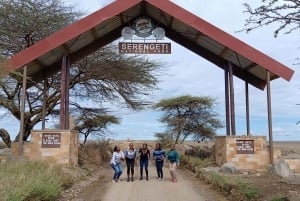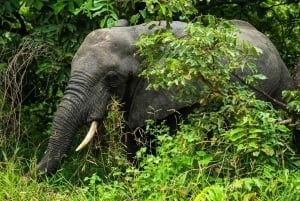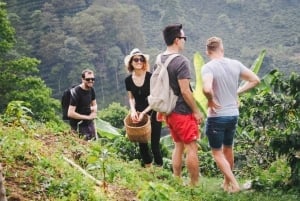Tanzania Health & Immunisation
Before travelling to Tanzania please consult your doctor or a travel clinic for advice on anti-malarial tablets and vaccinations.
East Africa's malarial strain has acquired resistance to some widely used anti-malarial tablets (Prophylactics). The drugs mostly administered in East Africa are as follows:
- Malarone - taken daily (few side effects)
- Mefloquine - taken weekly (potential side effects - depression, dizziness and sleep disturbance)
- Doxycycline - taken daily (side effects from exposure to sun - skin and eyes)
On the Tanzanian coast, where it is extremely hot and humid, watch out for cuts as these could easily turn into throbbing sores. Fungal infections also thrive in these conditions, so after washing ensure that you dry yourself thoroughly. When going out in the sun ensure that you are cover up with sun block, especially on the back if you are snorkeling. Limit the time spent in the sun, to avoid heat stroke and becoming dehydrated.
Although most Tanzanians can drink water from a tap, it is not advisable for visitors to do so. First time visitors to Africa are usually not immune from minor bugs that are found in the water and in some of the food. Bottled water can be purchased throughout Tanzania, and boiled water will usually be served at remote lodges and hotels. Before eating fresh fruit and vegetables from the market, make a point of washing them thoroughly.
If swimming in Tanzanian lakes, try to avoid areas where there are built up areas (villages), river inlets and slow moving water around vegetation, as there is a danger of being infected by bilharzia. This can easily be medically treated, and the main symptom to look out for in bilharzia is lethargy (extreme tiredness). Sometimes while passing urine, there will be burning pains and blood will be seen.
When packing for your trip it is advisable to include a small medical kit with the following:
- Imodium (anti-diarheal tablets)
- Antihistamine cream (for allergies)
- Antiseptic cream
- Aspirin (pain relief tablets)
- Plaster
HIV is prevalent in Tanzania, as at least one in ten Tanzanians carry the virus. It goes without saying that a condom should always be used during casual sex. Remember that HIV in Africa is a deadly gamble and risks should not be taken! Condoms are openly sold in pharmacies and supermarkets, but remember to check the expiry date and that they are not sun bleached from boxes being exposed to the sun. There have been stories of condoms being stapled onto shop displays, that have then since been sold with holes in them!
On arrival in Tanzania, it is compulsory to show a yellow fever vaccination certificate if your passport hs a stamp from a country in an 'endemic zone'. Consult with your doctor or travel clinic which of these countries this includes.
The most commonly recommended vaccinations are for typhoid, tetanus, polio and hepatitis.
List of Travel Clinics
- Australia and New Zealand - Travellers' Medical and Vaccination Centre
- UK - National Health Travel Network
- Ireland and UK - Tropical Medical Bureau
- USA - CDC
- Canada - Public Health Agency
- South Africa - Travel Doctor











